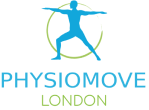Jaw pain is something that a lot of people may be tempted to put up with, especially when it’s in an area of the body that you wouldn’t necessarily associate with being a source of discomfort. But it can actually be an extremely debilitating problem for sufferers and can end up having a detrimental effect on their day to day lives.
One of the most common causes of jaw pain is temporomandibular joint disorders (TMDs). The temporomandibular joints (TMJ) are what joins the jaw bone (mandible) to the rest of the skull in front of each ear. They let you move your jaw up and down and from side to side, enabling you to speak and eat. If you have any symptoms related to your jaw such as grinding, pain, difficulty opening your jaw, pain on the TMJ and surrounding muscles then you may be given this diagnosis. Pain, inflammation and misalignment can develop within these joints and there are a number of factors that can contribute to patients developing TMDs. These include:
● Injury to the jaw- for example a heavy blow or impact to the area
● Excessive grinding of the teeth or clenching of the jaw
● Arthritis and/or general wear and tear of the joint
● Stress, which can cause people to tighten the jaw and face muscles
● Poor posture, which can lead to unnecessary pressure in the area
TMDs can cause a huge amount of discomfort and sufferers can experience a vast array of symptoms. These can include jaw, face, neck and upper back pain, headaches, dizziness, clicking sounds when opening and closing the mouth, ringing in the ears (tinnitus), feeling of locking of the jaw and limited jaw movement.
Patients may also experience misalignment of the jaw due to the imbalance of the muscles in the area or changes of the actual TMJs. This can lead to difficulty in eating, speaking and can limit everyday activities due to the pain and restricted movement.
Physiotherapy can play a vital role in the treatment of TMDs and our specialists here at Physiomove are experts in helping patients suffering with this problem. The physiotherapist will analyse the root causes of the problem and put together a tailored programme of exercises and joint movement techniques in an attempt to strengthen and realign the area.
This may also be advised alongside postural correction techniques to strengthen weak and loosen stiff muscles and joints in the neck, shoulders and back if it is felt that these are contributing factors to the patient’s discomfort.
Additional ways to help manage TMDs include mobilising the joints and surrounding muscles to alleviate stiffness, as well as applying a heat or ice pack to the affected area. Pain relief may also be recommended to manage the discomfort, as well as patients being advised to eat softer foods or cut food up in smaller pieces to minimise chewing.
The treatment plan from the physiotherapist will also equip patients with the knowledge to manage the issue at home in between sessions or when the treatment plan has finished, educating them on the triggers of their TMD and how they can learn to avoid these as much as possible.
But the overall aim of our specialist treatment for jaw disorder patients is to reduce the pain and, long term, help restore normal function and alignment in the affected jaw area so that patients can go on to be TMD free.
If you are suffering from jaw pain, please contact us today to see how we can help you.


